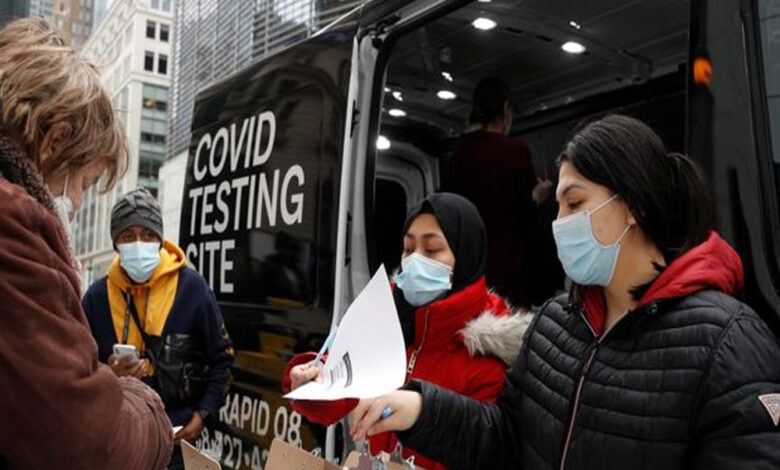Delta variant cases mark 32% weekly increase in UK, vaccine protection high
Public Health England said its weekly analysis shows the continued rise in infections is not followed by a similar increase in hospitalisations and deaths, which reflects a high protection offered by both doses of a coronavirus vaccine

UK health officials said the Delta variant of COVID-19 continues as the dominant strain of coronavirus and marked a sharp increase in the UK with 54,268 more cases logged on Friday, which marks a 32 per cent increase over the previous week.
Public Health England (PHE) said its weekly analysis shows the continued rise in infections is not followed by a similar increase in hospitalisations and deaths, which reflects a high protection offered by both doses of a coronavirus vaccine.
In a separate study, PHE also found that all the vaccines being administered are as effective at preventing symptomatic disease in the majority of people with underlying health conditions as the rest of the population.
“The data continues to show that the sharp increase in cases that we are seeing is not being followed by a similar increase in hospitalisation and death,” said Dr Jenny Harries, Chief Executive of the UK Health Security Agency.
“This is because two doses of the available vaccines offer a high level of protection against the Delta variant. Getting both jabs is the best way to ensure you and the people you love remain safe, so we once again urge everyone to come forward as soon as they are eligible,” she said.
“As we approach the planned end of restrictions, we must remain cautious and careful. Cases are rising across the country, and whilst the vaccines offer excellent protection, they do not offer 100 per cent protection,” she added.
The weekly PHE data found the Delta AY.1 sub lineage, so-called Delta plus mutation for its feared vaccine resistance, remains low at 44 cases. Overall, the Delta variant – first identified in India – currently accounts for approximately 99 per cent of cases that are sequenced across the UK, followed by the local Alpha variant of concern. ` In a variant technical briefing, PHE revealed that “secondary attack rates” – the likelihood of an infection occurring in a given context – amongst household contacts of cases with Delta has continued to fall. Despite this continued fall, secondary attack rates for both household and non-household contacts of cases with Delta remain higher than for Alpha.
In its separate vaccine study, PHE found overall vaccine effectiveness against symptomatic disease in risk groups at approximately 60 per cent after one dose of either Oxford AstraZeneca [Covishield] or Pfizer/BioNTech, with little variation by age. After two doses, vaccine effectiveness is 81 per cent with Oxford/AstraZeneca in people in risk groups aged 16 to 64. No data is available for both doses of Pfizer/BioNTech yet.




